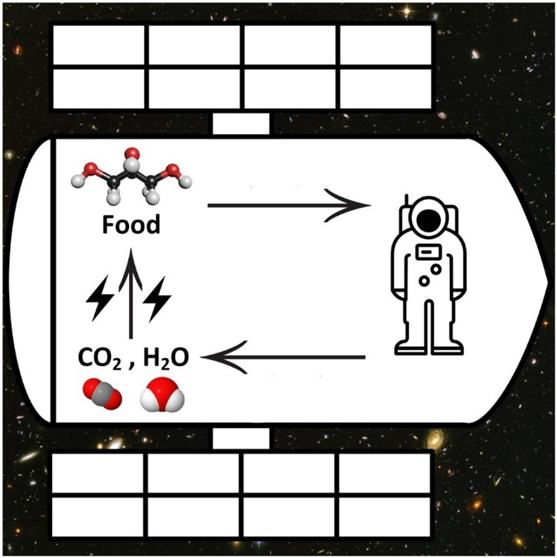Making Food Without Using Plants or Animals

Did you know food can be made from air, water and electricity without ever involving a living thing? It’s called nonbiological synthesis or direct chemical synthesis.
A new peer-reviewed research paper in the Journal of CO2 Utilization, co-authored by David Denkenberger of ACEP and UAF Ph.D. candidate Kyle Alvarado, explores this technology for space travel.
Glycerol, a common food additive, can be produced with an electricity-to-food conversion efficiency of 10-21%, it appears. This is much more efficient than growing plants with electric light. But what’s most important for space application is how much the system weighs — it is much lighter than not only electric lights but also prepackaged food, the current dominant option. That’s in part because producing food this way also absorbs carbon dioxide and produces oxygen for the astronauts. However, hydrogen-consuming microbes are an even lighter option.
This research could be beneficial in global catastrophes such as nuclear war and for long-term sustainability as land and water become scarce.
This work was supported by the Alaska NASA EPSCoR RID seed grant and the Alliance
to Feed the Earth in Disasters (ALLFED).


